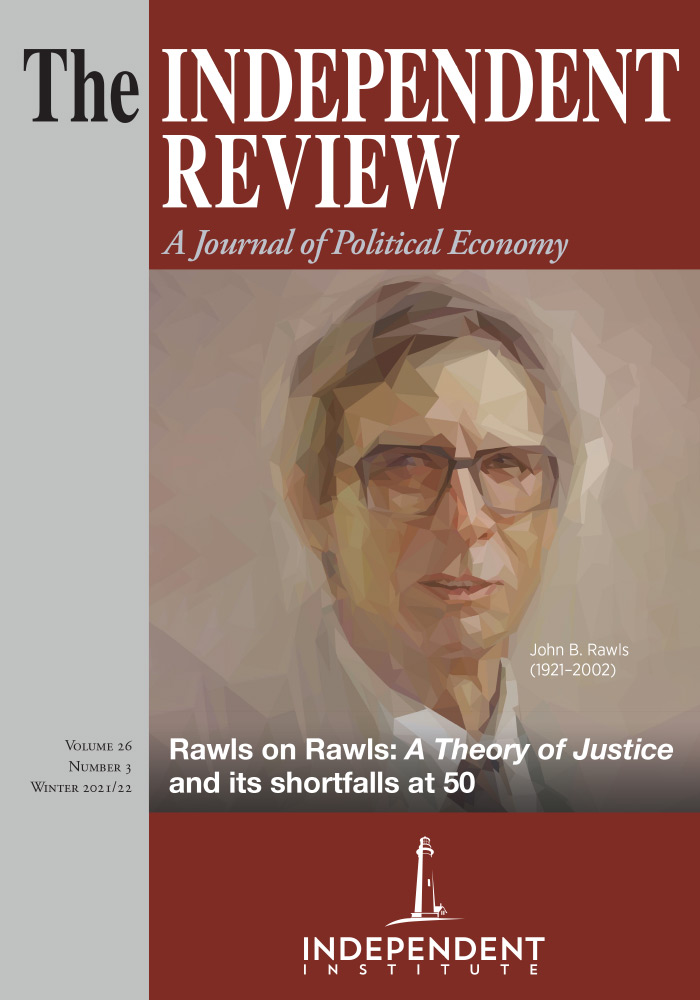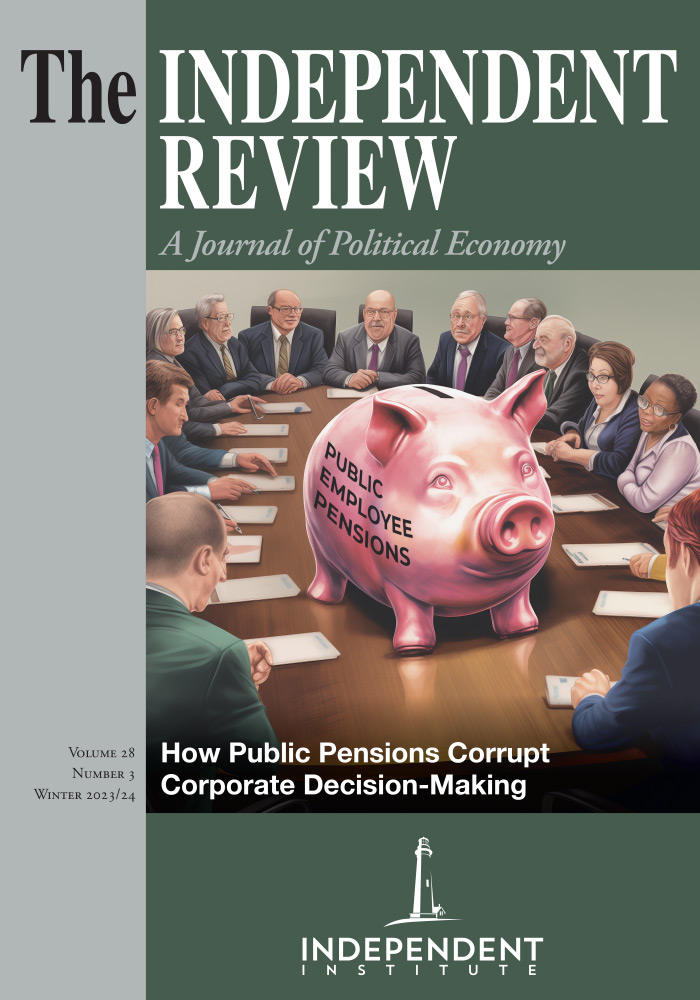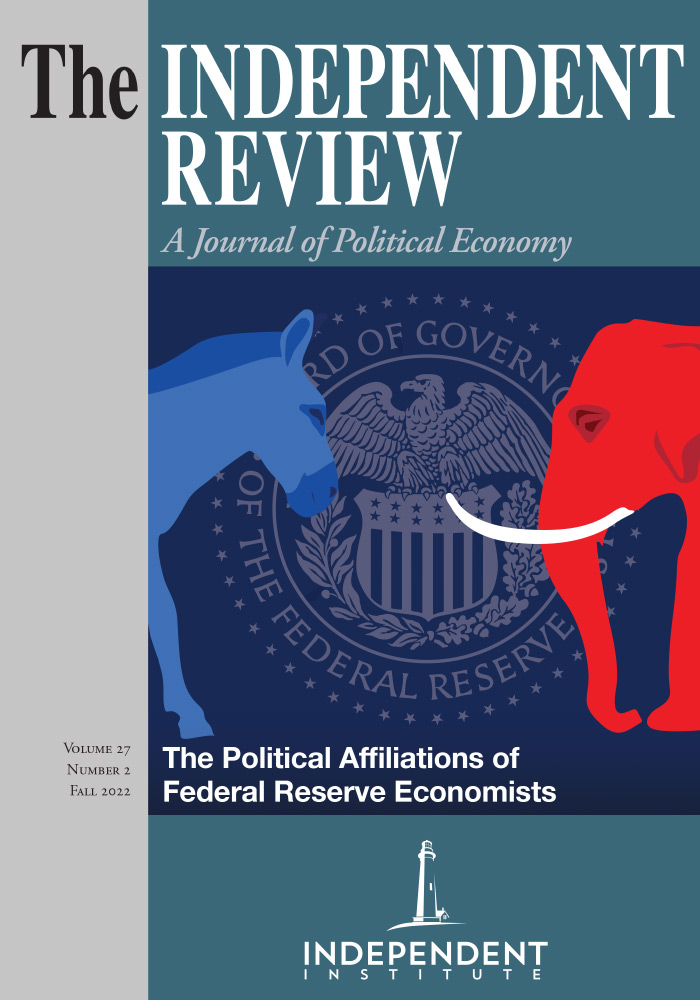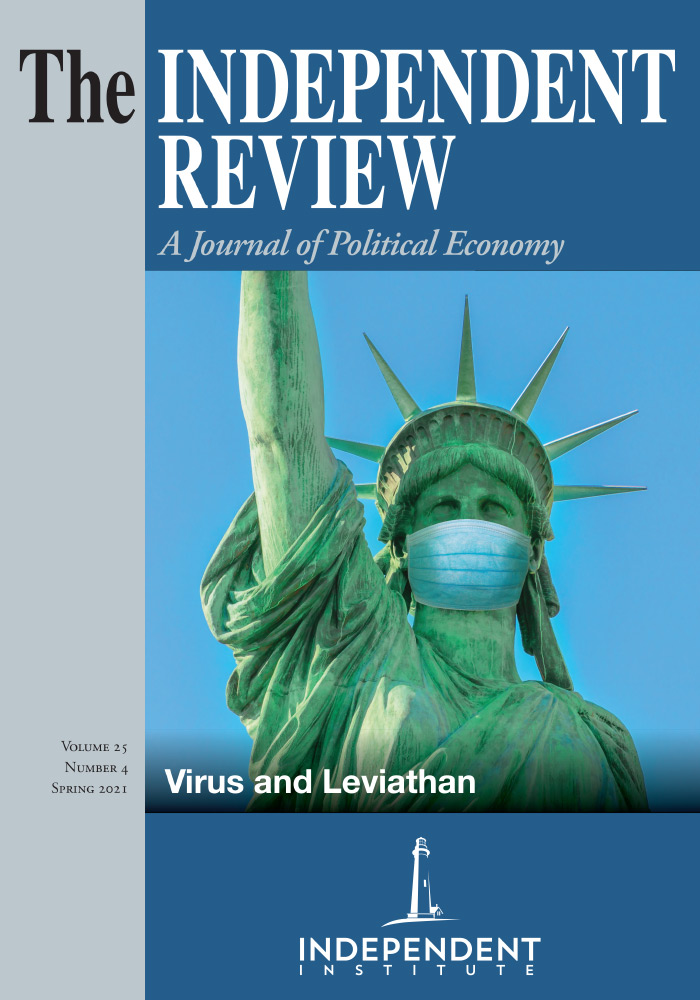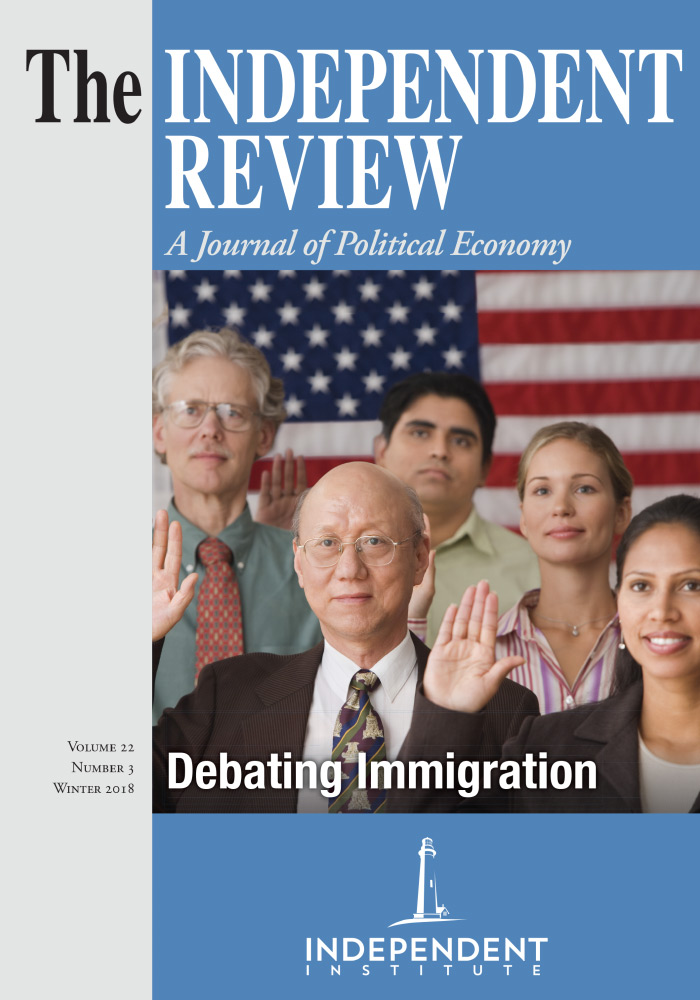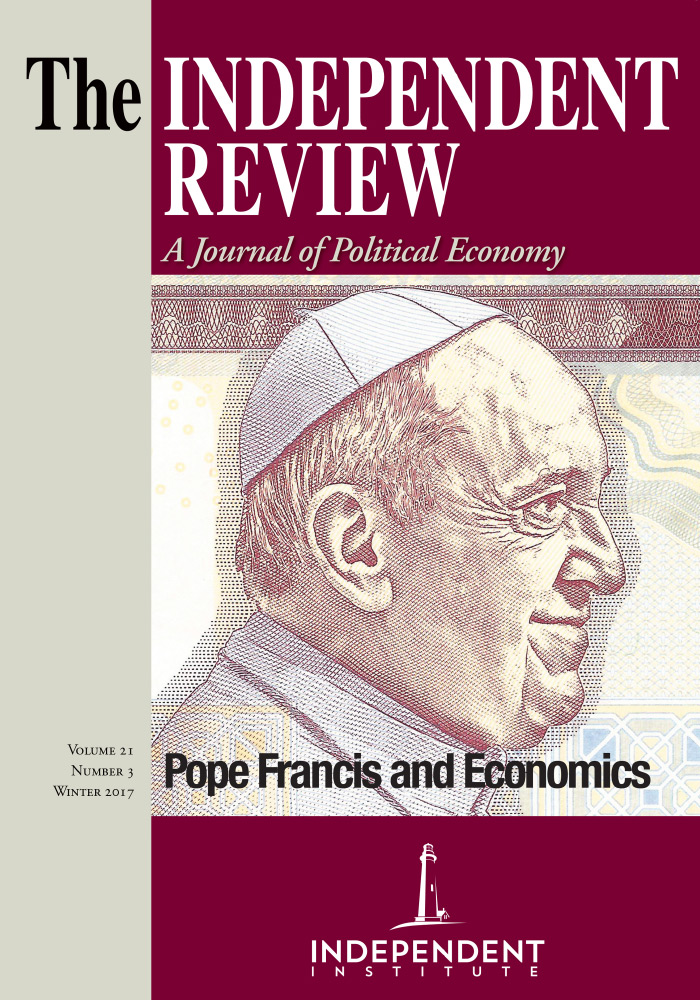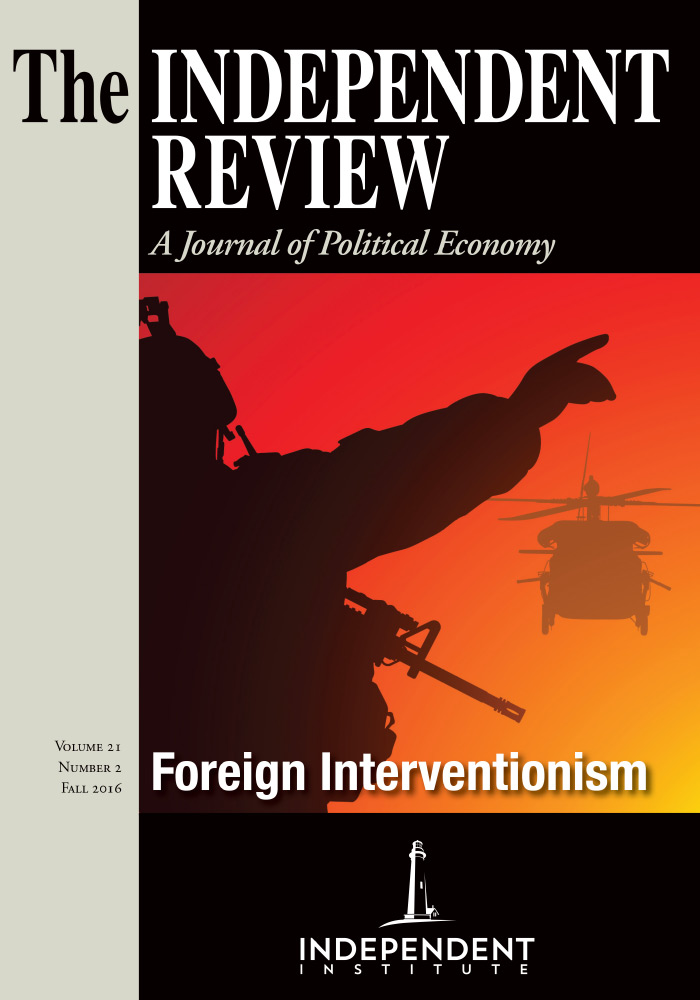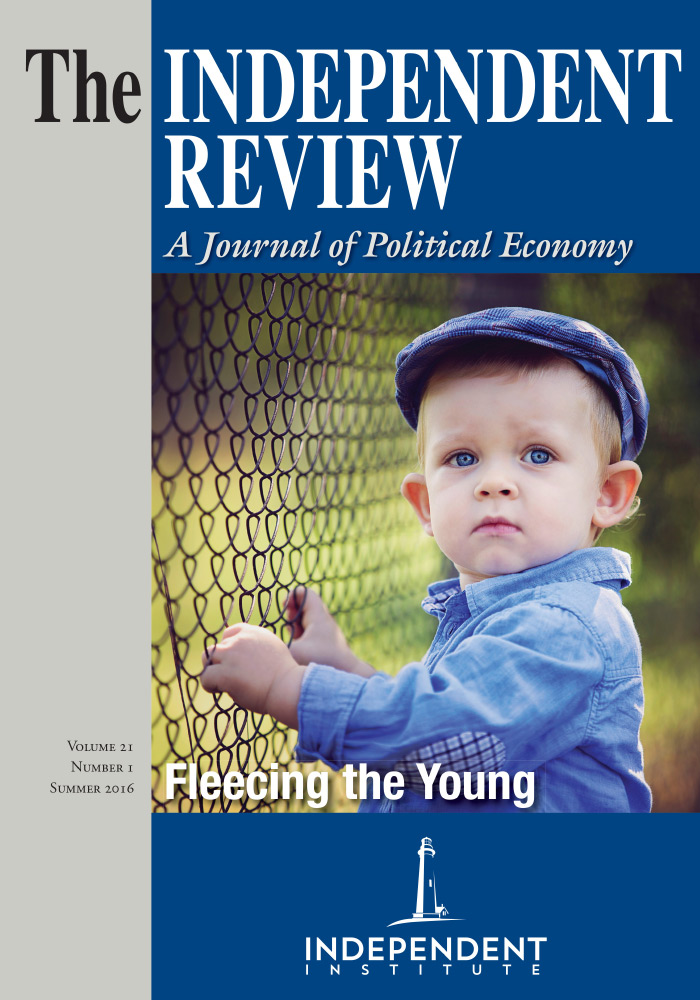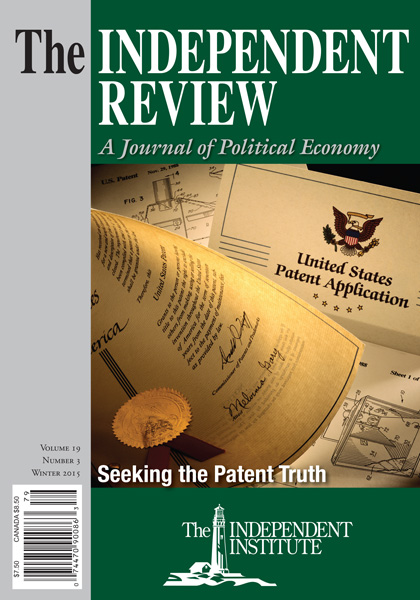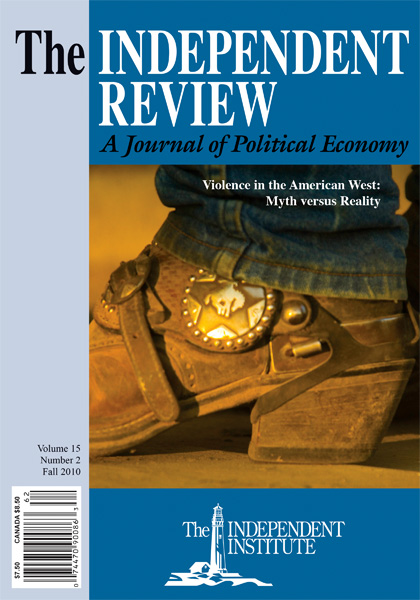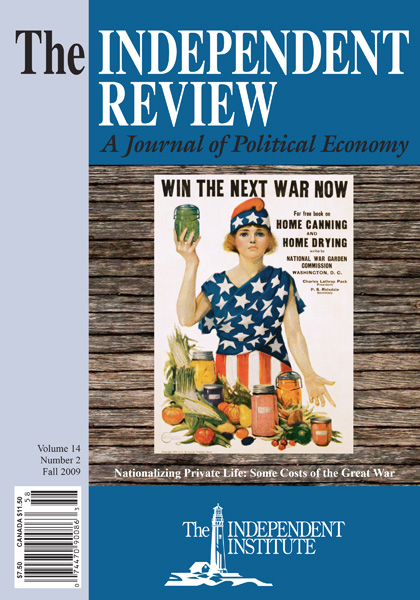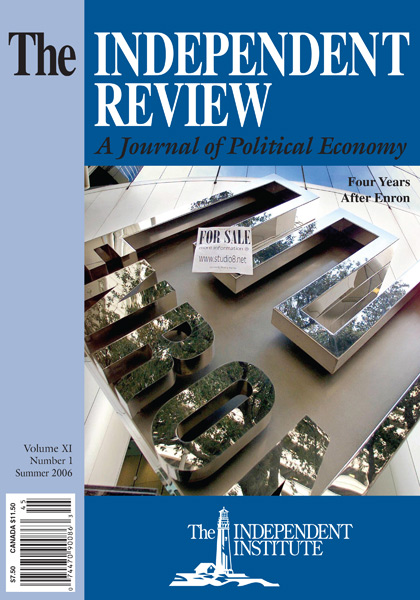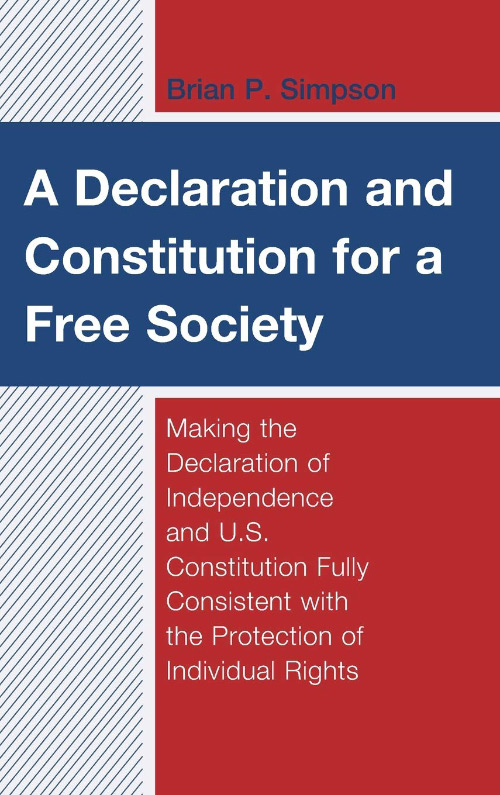 Randall Holcombe reviewed my book, A Declaration and Constitution for a Free Society (2021, Lanham, Md., Lexington Books), in the Summer 2021 issue of The Independent Review. I appreciate his analysis of the book. While there are some statements in his review that I agree with, there are many with which I disagree, including some misrepresentations of my arguments. This response gives me a chance to address some of the comments with which I disagree and clarify some of the arguments in the book.
Randall Holcombe reviewed my book, A Declaration and Constitution for a Free Society (2021, Lanham, Md., Lexington Books), in the Summer 2021 issue of The Independent Review. I appreciate his analysis of the book. While there are some statements in his review that I agree with, there are many with which I disagree, including some misrepresentations of my arguments. This response gives me a chance to address some of the comments with which I disagree and clarify some of the arguments in the book.
First, Holcombe states that I seek to increase the power of the federal government over the state governments. He states, “As originally envisioned, the federal government was a federation of states and the Constitution limited the powers of the federal government, leaving states to run their own governments. This changed after the Civil War when the federal government gained some authority over state governments, and Simpson envisions even more federal authority over the states.”
It’s true that I do propose greater restrictions on state governments through the Constitution. However, the United States would still be a federation of states. For example, potential new states could still decide whether they want to join the United States (assuming approval of Congress) and abide by the restrictions in the Constitution. The important point to understand here is that the state governments often violate rights and must be prevented from doing so. That’s what some of the new provisions in the revised Constitution do. (For examples, see Simpson, 2021, pp. 88–92, 154–157, and 208–210. Henceforth, I’ll only provide the page numbers when referencing my book.)
The original Constitution also imposed limits on the states in Article I, Section 10. This section, of course, existed prior to the Civil War. The restrictions I add are consistent with this section. However, the focus is shifted to only imposing restrictions that require the states to protect rights. These are the same restrictions imposed on the federal government in the revised Constitution. To anyone who values freedom, I don’t see how any objections can be raised to these restrictions. State governments aren’t free to do whatever they want. Mechanisms must be put into place to prevent them from violating rights.
In addition, Holcombe objects to my elimination of term limits on the president. He says, “The Twenty-Second Amendment . . . would be eliminated by Simpson. . . . It seems reasonable, however, and not a violation of rights, to design a government so that the exercise of its power is rotated among individuals rather than resting with the same people. True, this would prevent popular politicians like Vladimir Putin and Xi Jinping from remaining in power, which may explain why Russia and China both did away with term limits.”
To evaluate this comment, one must ask: does power rotating more frequently among different individuals rather than resting with the same person for a longer time period protect rights? The answer is: no. Limiting the power of the government to only retaliating with force protects rights. If one understands this, one can understand that having term limits could potentially prevent rights from being protected in a better manner if a president who does an excellent job of protecting rights is termed out and the alternative candidates don’t support rights as strongly. (For more on why term limits aren’t consistent with protecting rights, see p. 163.)
Holcombe also attempts to make it appear that my argument supports “voting” into office such politicians as Vladimir Putin and Xi Jinping. This is a straw-man argument. It ignores the entire context of the book, where the focus is on creating a government that protects rights. Russia and China are obviously not free societies in which free elections are held. These countries have corrupt election systems where authoritarian governments use their power to obtain the outcomes they want. (See Freedom House, 2021, Freedom in the World 2021. Information on elections in China can be found here. Information on elections in Russia can be found here.) None of this applies within the context of establishing a constitution that consistently protects rights.
Finally, regarding my amendment to protect a woman’s right to obtain an abortion, Holcombe states, “The suggested wording that Simpson says allows abortion reads (p. 186), ‘The right of each individual to the control of his or her own body shall not be infringed...’ which seems ambiguous with regard to abortion. Does a person have a right to swing a sword at the body of another? Those who argue that life begins at conception assert that abortion amounts to the same thing.”
I didn’t specifically mention abortion in this amendment because I wanted the amendment to apply more broadly than only to abortion. If protecting this fundamental right requires explicitly referring to abortion, such a reference should be added. What I want to focus on here is the straw-man argument Holcombe puts forward in this comment. He context-drops when he implies that my amendment for individuals having the right to control their own bodies is consistent with people having an alleged right to attack others with swords. As shown in Holcombe’s quotation from my book, the focus in this amendment is on the right of each individual to the control of his or her own body. A right, as discussed in the book, doesn’t mean the right to violate the rights of others. That’s a contradiction. As is also discussed in the book, rights are tools we use to protect people from the initiation of physical force—and the threat of such force (pp. 9–13). One cannot legitimately ignore the nature of rights as discussed in the book (and to which I also refer in the revised Constitution itself [pp. 46–47 and 50]) when reading any particular amendment I propose to the Constitution. Note that it’s also shown in the book and relevant references therein why a woman being able to obtain an abortion is a fundamental right (pp. 138 and 187).
Through this short response, one should be able to begin to gain a better understanding of not only the content of the book but the nature of rights and freedom and how to defend them.

